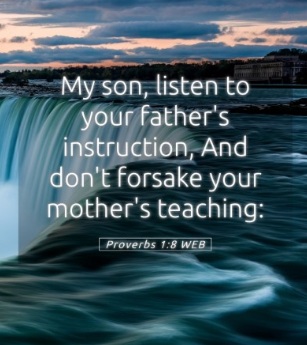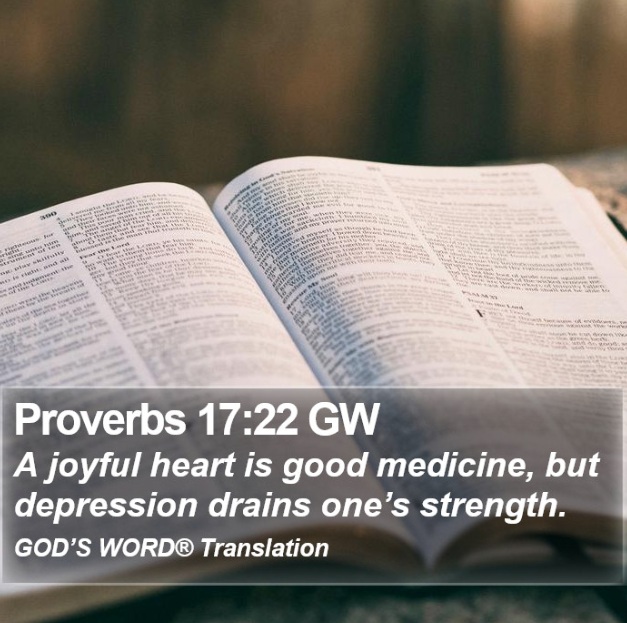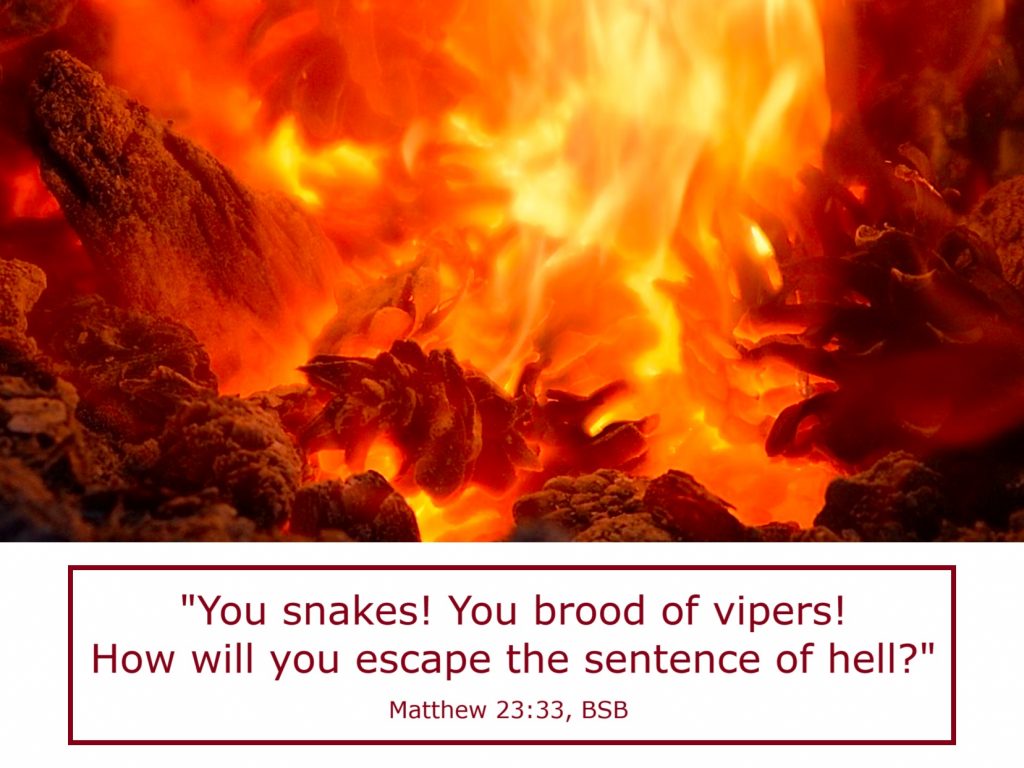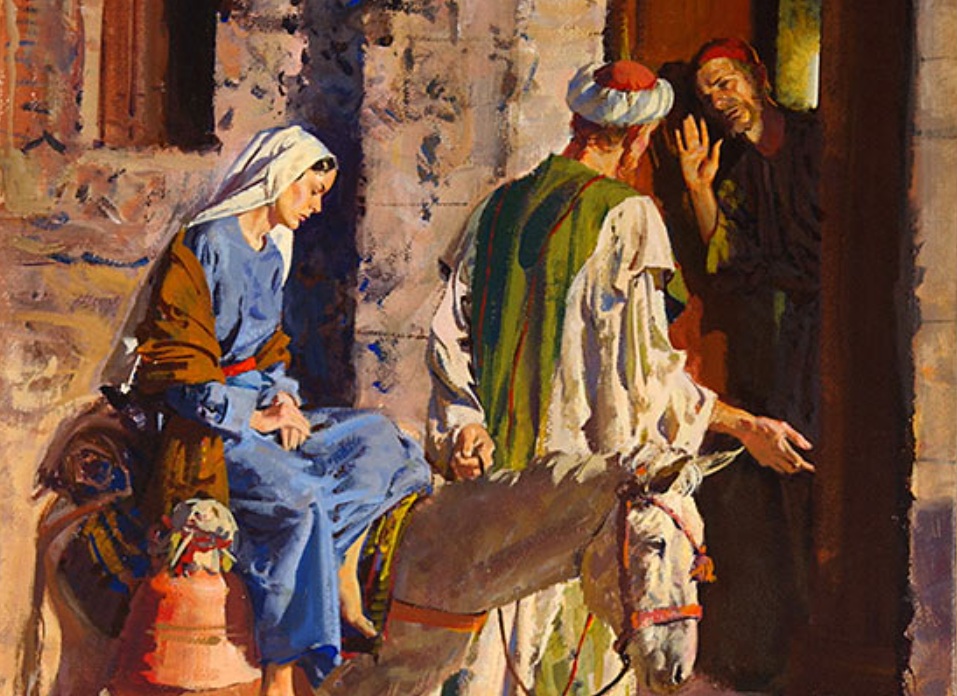“Go therefore and make disciples of all the nations…teaching them to observe all that I commanded you; and lo, I am with you always, even to the end of the age” (Matthew 28:19-20, NASB).
——————–
Contents:
1) “The Lord Turned and Looked at Peter” (Kyle Pope)
——————–
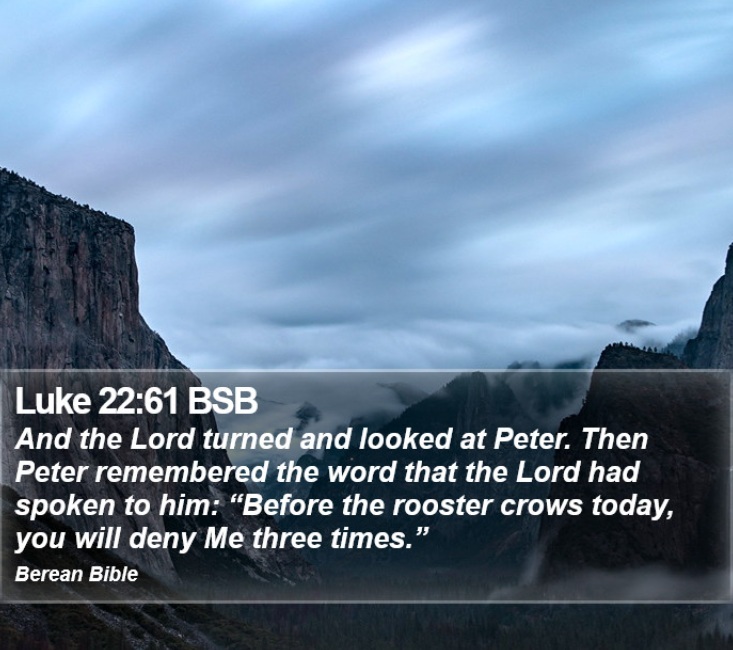
-1-
“The Lord Turned and Looked at Peter”
Kyle Pope
On the night before Jesus’ death, after the disciples had run away in fear from the detachment of soldiers that had seized Jesus in the garden, Matthew tells us that Peter “followed Him at a distance” going into the high priest’s courtyard, where he “sat with the servants to see the end” (Matt. 26:58, NKJV). Only hours before Peter had confidently announced, “Even if all are made to stumble because of You, I will never be made to stumble” (Matt. 26:33), going so far as to boast, “Even if I have to die with You, I will not deny You!” (Matt. 26:35). I have no doubt that Peter meant what he said. He loved the Lord, and had every intention of serving him to the death, but it is never wise to boast about the future or about our own strength. We never know what conditions the Lord may call upon us to endure.
Just a short time after Peter made his boast, he was more than willing to take up arms when the soldiers first came to seize Jesus. John tells us, “Then Simon Peter, having a sword, drew it and struck the high priest’s servant, and cut off his right ear” (John 18:10). To cut off someone’s ear some have speculated that it must have been that Peter aimed for the head, and only struck the ear because the man drew back, causing Peter’s sword to graze the side of his head. Clearly, Peter was ready for war! But Jesus had something else in mind. He told Peter to put his sword back in its sheath (John 18:11) then he touched the man’s ear and healed him (Luke 22:51). Peter knew how to fight, but how was he to respond to this? His commitment to follow Jesus even to death had not anticipated a call to willingly submit to the enemy! This was more than Peter could bear. Mark records, “Then they all forsook Him and fled” (Mark 14:50). It is interesting that Mark alone records these words. Papias, the second century bishop of Hierapolis, claimed that Mark was “the interpreter of Peter” and “whatsoever he recorded he wrote with great accuracy” since “he was in company with Peter who gave him such instruction as was necessary” (Eusebius, Ecclesiastical History 3.39.15-16). Is it possible that the Holy Spirit, through Mark, records Peter’s own recollection—“all forsook Him and fled”—Peter included?
In the High Priest’s courtyard, Luke tells us “they had kindled a fire in the midst of the courtyard and sat down together” (Luke 22:55). Peter is there with them, but having chosen to forsake Jesus, he is in the wrong place at the wrong time! The first to notice him is a young woman. She says, “You also were with Jesus of Galilee” (Matt. 26:69), but Peter denies it (Matt. 26:70). Peter’s decline into denial did not begin with an overt rejection of Jesus and his teachings. He wasn’t in the courtyard giving himself over to sin and indulgence, he simply refused to identify himself with the Lord and his people. To deny Jesus we don’t have to start out as infidels—we just have to be afraid to let others know we are Christians.
The woman’s question makes Peter nervous. So, as Matthew tells us, he moved “out to the gateway” (NKJV) or “porch” (KJV), when a girl says to him once again, “This fellow also was with Jesus of Nazareth” (Matt. 26:71). Matthew alone records Peter’s next step as denial “with an oath” saying “I do not know the Man!” (Matt 26:72). Peter had heard Jesus teach in the Sermon on the Mount “do not swear at all” (5:34). Now he not only denies his relationship to Jesus, but moves to violate his teaching! Chris Reeves writes, “Notice that Peter refers to Jesus as ‘the man.’ He wouldn’t even say his name! Clearly Peter wanted to disassociate himself from Jesus” (“When the Cock Crows” 9). This wasn’t a detachment of soldiers—it was a young girl! Augustine put it well, “Behold, the strongest column has trembled to its foundations at a single breath of air!” (Lectures on the Gospel of John, Tractate 113). After we have distanced ourselves from the Lord it becomes much easier to give in to sin.
After, what Luke tells us was about an hour (Luke 22:59), the two previous charges appear to have sunk in with the rest of those gathered in the courtyard. Matthew tells us, “those who stood by” (NKJV) or “the bystanders” (NASB) challenge him one final time, saying, “Surely you also are one of them, for your speech betrays you” (Matt 26:73). Something about Peter’s accent or speech patterns made it clear, “he is a Galilean” (Luke 22:59), just like Jesus.
While all of this was going on, Jesus too was being questioned—not by the servants, but by the High Priest himself. At least part of this was within sight of the courtyard, allowing Peter to see what was happening to Jesus, and Jesus to see what was happening to Peter (cf. Luke 22:61). Gerhardsson has observed the interesting correlation between what happened during Jesus’ questioning at the very same time Peter was denying him. Jesus remained silent when accused by false witnesses (26:59-60a), even in the face of specific false accusations (26:60b-63a). Only when charged under oath to confess his identity, did Jesus break his silence and confess his true identity (26:63b-64). As Jesus endured this disgrace, Peter will deny him once (26:69b-70), then a second time under oath (26:71-72). Then, in the face of continued pressure (while Jesus confessed his true identity), Peter denied him yet again as he began “to curse and swear” (26:73-74).
While Scripture condemns fifthly language, which we might call cursing (Eph. 4:29), that is not what Peter was doing. From a Biblical standpoint to curse is to call condemnation or ill will upon another (cf. Deut. 28:15-68). The word translated “to curse” is katanathematizein meaning literally “to anathematize.” Although it is possible that Peter was calling condemnation on himself as a way to try and convince his accusers that he was not one of Jesus’ disciples, some scholars think something else was involved here. In the Second Century, Justin Martyr records that during Jewish revolt that was led by Bar Kochba, he forced Christians not only to deny Jesus, but actually to blaspheme, apparently by cursing Jesus (First Apology 31). Merkel asks, “Did Peter under renewed pressure in spite of his repeated protestations, resort to what would probably count in the eyes of his Jewish opponents as the strongest way of dissociating himself, that is, cursing Jesus?” (69).
When Peter did this, “a rooster crowed” (Matt. 26:74), or as Mark indicates “a second time the rooster crowed” (Mark 14:68, 72). This was probably an allusion to the Roman method of measuring the watches of the night. When more than one “cock-crowing” was referred to, the first signaled the end of the third watch, about 3:00 AM (cf. Mark 13:35). When two were referenced, it was what the Romans called secundum gallicinium /“the second cock-crowing,” around sunrise (cf. Ammianus Marcellinus, Rerum Gestarum 22.14.4). Just as Jesus had foretold, Peter denied him in the exact manner he had foreseen, and at the exact time he had foreseen (Matt. 26:34; Mark 14:30).
The fact that Jesus and Peter were within sight of each other is quite significant. When the rooster crowed after Peter’s last denial, Luke adds the striking words, “and the Lord turned and looked at Peter” (Luke 22:61). Peter had seen Jesus’ look of compassion for the helpless and hungry multitudes (9:36; Mark 8:2). He has seen his look of rebuke when Peter said he would not die (Mark 8:33), and his look of deliverance and salvation when he began to sink into the raging waves (14:31). Yet, now what a look of piercing disappointment, and shame must have shot through the darkness of the courtyard, as Peter would realize in disgrace, and horror that Jesus had not only foreseen his treachery, but knew the very moment when it was realized! The last words that Matthew tells us about Peter in his gospel are that “he went out and wept bitterly” (Matt. 26:75).
We know that after the resurrection, John records Jesus’ three-part charge to Peter to feed (or tend) his flock—believed to demonstrate Jesus’ renewed acceptance of Peter, mirroring Peter’s three-part denial (John 21:15-19). We know that, after his repentance, and restoration back to Jesus, in only a few days, Peter would stand before the same men who questioned Jesus while he fearfully watched from the courtyard and courageously confess his faith in the Lord (Acts 4:5-12). This is certainly a lesson about forgiveness and repentance. But Peter’s decline into denial is also a lesson about commitment. Service to the Lord will demand things of us we do not now expect—will we have the courage to bear them? Identification with Jesus won’t always be easy, but even the worst hardship we must bear in service to the Lord, is nothing compared to the shame and horror we could feel one day if in the Judgment the Lord must turn and look at us when we have lived a life that denied Him!
Works Cited
Gerhardsson, Birger. “Confession and Denial Before Men: Observations on Matt. 26:57-27:2.” Journal for the Study of the New Testament 13.4 (1981) 46-66.
Merkel, Helmut. “Peter’s Curse.” The Trial of Jesus: Cambridge Studies in Honour of C. F. D. Moule. Ed. Ernst Bammel. London: SCM Press Ltd., 1970.
Reeves, Chris, “When the Cock Crows.” Truth Magazine 44.1 (Jan. 2000) 9-10.
— Via Faithful Sayings, Volume 20, Issue 17, November 25,2018
——————–
The Steps That Lead to Eternal Salvation
1) Hear the gospel — for that is how faith comes (Rom. 10:17; John 20:30-31).
2) Believe in the deity of Jesus Christ, the Son of God (John 8:24; John 3:18).
3) Repent of sins. For every accountable person has sinned (Romans 3:23; Romans 3:10), which causes one to be spiritually dead (Ephesians 2:1) and separated from God (Isaiah 59:1-2; Romans 6:23). Therefore, repentance of sin is necessary (Luke 13:5; Acts 17:30). For whether the sin seems great or small, there will still be the same penalty for either (Matt. 12:36-37; 2 Cor. 5:10) — and even for a lie (Rev. 21:8).
4) Confess faith in Christ (Rom. 10:9-10; Acts 8:36-38).
5) Be baptized in water for the remission of sins (Mark 16:16; Acts 2:38; 22:16; 1 Pet. 3:21). This is the final step that puts one into Christ (Gal. 3:26-27). For from that baptism, one is then raised as a new creature (2 Cor. 5:17), having all sins forgiven and beginning a new life as a Christian (Rom. 6:3-4). For the one being baptized does so “through faith in the working of God” (Col. 2:12). In other words, believing that God will keep His word and forgive after one submits to these necessary steps. And now as a Christian, we then need to…
6) Continue in the faith by living for the Lord; for, if not, salvation can be lost (Matt. 24:13; Heb. 10:36-39; Rev. 2:10; 2 Pet. 2:20-22).
——————–
Tebeau Street
CHURCH OF CHRIST
1402 Tebeau Street, Waycross, GA 31501
Sunday: 9 a.m. Bible Classes and 10 a.m. Worship Service
Wednesday (all but the first): 7 p.m. Bible Classes
First Wednesday of the month: 7 p.m. Congregational Song Service (about 45 minutes of singing, followed by a short talk)
evangelist/editor: Tom Edwards (912) 281-9917
Tom@ThomasTEdwards.com
https://thomastedwards.com/go/all.htm (This is a link to the older version of the Gospel Observer website, but with bulletins going back to March 4, 1990.)
